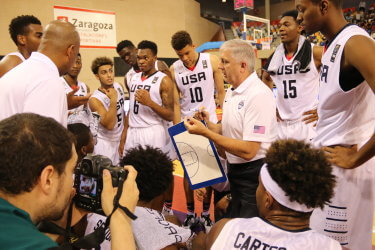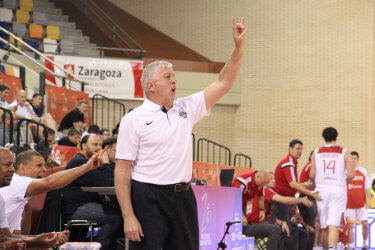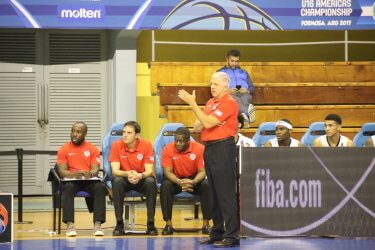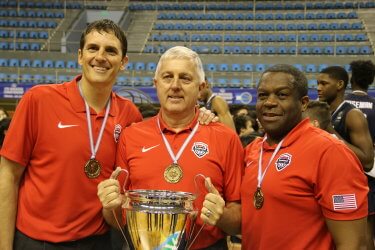Introduction
Coaches are responsible for creating environments that are safe, challenging, and provide rewarding experiences for all of their athletes. These environments are often referred to as team culture. Developing a successful team culture is a key characteristic of an effective coach and essential for long-term athletic achievement. Three-time national championship and current Ohio State University football coach, Urban Meyer emphasized the importance of the coach in creating a team culture that leads to desired results: “…leaders create culture, culture drives behavior, and behavior produces results” (Meyer, 2015, p. 65).
There are many techniques coaches can use to build team culture. A quick Google search of, “building team culture in sport,” reveals over 88 million results. If you narrow it down by sport, for example, “building team culture in basketball,” over 33 million options appear. While latching on to an idea following a random internet search may yield results, it’s more effective to examine what master coaches do. Mastery in coaching occurs when a coach exhibits effectiveness and expertise in teaching sport (Gilbert & Trudel, 2012). In other words, a master coach demonstrates the ability to improve athlete performance while also finding success on the scoreboard.

Don Showalter, Head Coach and Director of Coach Development for USA Basketball’s Youth Division exemplifies what a master coach looks like. Throughout his 42-year hall of fame high school coaching career and his work with USA basketball, Don has demonstrated effectiveness and expertise in teaching sport. As a high school coach, Coach Showalter won over 600 games and in 2009, was named the National High School Athletic Coaches Association National Coach of the Year. During his tenure as the head coach of USA Men’s Basketball U16 and U17 National Teams, he amassed a 55-0 record and won nine-straight gold medals (USA Basketball, 2017).
Part of Coach Showalter’s effectiveness as a coach is illustrated by his ability to develop a successful team culture, using a process that engages both his players and staff. The process involves the implementation of several components: daily team meetings, establishing individual and team standards, and insisting upon consistent communication between all members of the team. This approach is of course not unique. Many coaches employ similar methods to create an environment for their athletes to learn and grow. But, beyond the specific methods used to establish team culture, what is the “glue” that holds everything together? How can you reinforce the key concepts in building the team environment you want? In this article, the concept of “Mind Candy” is discussed in relation to developing and reinforcing team culture.

What is “Mind Candy?”
Mind Candy refers to short phrases Coach Showalter addresses each day in practice. These short phrases inspire athletes, drive home key concepts, and stimulate discussion (Table 1). More importantly, they set expectations that can help coaches establish a team culture.
Table 1: Examples of Mind Candy
| The thing that drives all success is passion and enthusiasm for what you do |
| These require zero talent: Being on time, work ethic, effort, body language, energy, attitude, passion, and being coachable |
| 3 things that lead to success: Work hard, stay humble, surround yourself with good people (this takes time, is hard, and does not happen in a vacuum – you need other people to find success) |
| It is just as important to be respected as it is to be good. Being respected will help get you through times when you aren’t so good |
| 4 C’s that separate talented players: choice, comfort zone, communication, and compete |
| Success is the sum of small efforts repeated day in and day out |
| You have to be a family first to be a team and being a family begins and ends with communication |
| More players act entitled than responsible |
| For us to win the gold medal we need to be 3 things – unselfish, smart, and aggressive |
(Courtesy of Don Showalter, USA Basketball)
How is Mind Candy Used?
Coach Showalter uses Mind Candy to develop a culture that gets everyone on the same page. At the beginning of each practice, he introduces a new “Mind Candy” phrase. He writes the short phrase at the top of his daily practice plan, shares it verbally during the team meeting, and has each athlete record the daily “Mind Candy” in a notebook. Coach Showalter then discusses with players and coaches how that day’s Mind Candy relates to them, their commitment to the team, and how they can improve as a unit.
For example, if the Mind Candy for the day is, “You don’t rise to the occasion, but you sink to the level of your training,” each player writes this phrase in his or her notebook. Coach Showalter then has each player write a two to three sentence paragraph about how this relates to the team and what it says about how they plan to approach practice that day. Next, he asks one or more players to stand and share their thoughts on the phrase. The discussion and implementation of the Mind Candy carries over to the practice court, where it’s used to reinforce a team standard or help players maintain focus throughout the practice session.

Why it Works?
The strength and impact of Mind Candy is in its ability to open lines of communication between coaches, players, and support staff. It provides a consistent shared experience each day between all team members. By increasing dialogue and improving communication among the athletes and coaches, coaches are creating an environment in which each of their athletes can succeed. As coaches and athletes connect and strengthen their bond, opportunities to unite as a team increase.
Developing Your Own Mind Candy
Mind Candy can become the “glue” for promoting dialogue and team cohesion, and establishing and reinforcing the culture you want for your team. Whether you use a similar process that involves short phrases, choose a different approach, or are seeking new ideas in building team culture, consider the following (3) tips to help you develop as a coach:
- Reflect
Consistently reflect on your coaching actions. Reflection helps remind you why you are coaching and keeps you true to your beliefs. What you believe in, will guide your actions. If you do not believe in what you are doing or try to be someone you are not, it will be difficult to set standards for your team and even more difficult to establish credibility when reinforcing these standards.
- Relate
The longer you are in coaching, the larger the generation gap between you and your assistants and athletes becomes. Continue to find ways to stay relevant in the eyes of those you lead, by making a purposeful attempt to connect with them each day. The stronger the personal bond you share with each athlete, the easier it will be to implement team building concepts in developing the culture you are seeking.
- Learn
Coaching longevity depends upon a willingness to continually learn and get better as a teacher and sport leader (Mallett, Rynne, & Dickens, 2013). Even if the method you have been using to build team culture in the past has been successful, you may discover other approaches or slight modifications that can make all the difference.
In summary, each day coaches must nurture the environment they have created and fight to overcome challenges that interfere with the process. Building team culture is an ongoing continuous process driven by the efforts of the coach. While all coaches likely realize the importance of team culture in achieving success on the field of play, master coaches understand how the environment they create can transcend the playing field and have a lasting influence on every member of the team after their experience together has ended.

References
Gilbert, W., & Trudel, P. (2012). The role of deliberate practice in becoming an expert coach: Part 1–Defining coaching expertise. Olympic Coach Magazine, 23(3), 19-24.
Mallett, C., Rynne, S., & Dickens, S. (2013). Developing high performance coaching craft through work and study. In P. Potrac, W. Gilbert, & J. Denison (Eds.), Routledge Handbook of Sports Coaching (463-475). New York, NY: Routledge.
Meyer, U. (2015). Above the line: Lessons in leadership and life from a championship season. New York: Penguin.
USA Basketball (2017). USA Basketball Staff. Retrieved from: https://www.usab.com/basketball/staff/s/don-showalter.aspx

Buenos dias
Soy de colombia y quisiera estae en contacto con ustedes en el trabajo ya que mi hijo a entrenado con showalter en estados unidos